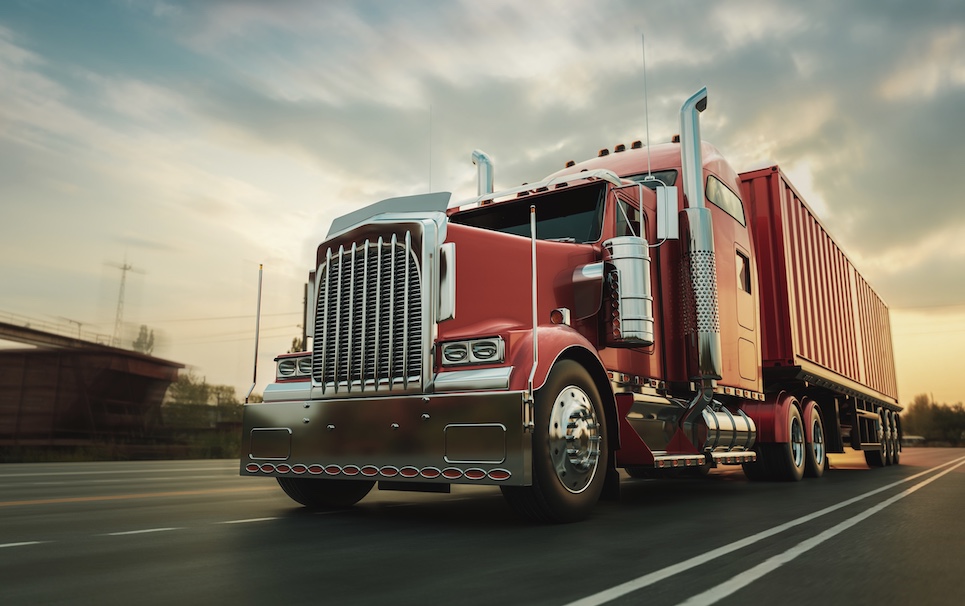Manufacturers and other businesses in the industrial sector sometimes need to transport bulk cargo, plant machinery, and other heavy equipment that they use in the manufacturing plants and factories. Some of these machines can be assembled once they reach the manufacturing plant. But there are some machines and equipment to be transported as-is and can’t be disassembled into their component elements.
These kinds of machines have to be transported using trailer trucks. The huge manufacturing machines are loaded onto trailer trucks that will then deliver them to the plant site. Even construction companies use trailer trucks to transport their tracked heavy equipment to the project site. Such heavy equipment can’t travel to the project site over long distances without being loaded onto a trailer truck because of their slow velocity.
Here’s a brief guide on choosing the best trailer decking options:
Types Of Trailer Decking
The trailer decking is a utility trailer component that you can choose. There are several ways to construct the trailer decking. But in terms of the material used, you can classify all trailer decking as wood, aluminum, or steel. Here’s a brief guide on the use of these materials for your trailer decking.
1. Aluminum Decking
Aluminum is also a good material for trailer decking. It’s commonly used by those who prefer light materials for their trailer decking. Trailers like the lightweight material of aluminum because it enables them to significantly reduce weight load during travel. Unlike other metals, aluminum doesn’t rust or corrode easily. It would take a lot of time and neglect before a sheet of the surface aluminum is damaged by corrosion.
Trucks with aluminum decking also have better levels of fuel economy and driving performance. They consume less fuel because of their lightweight. It also enables aluminum deck trucks to take in more and heavier cargo because their light decking adds up to a lower total weight. It gives aluminum trucks higher cargo capacity compared to trucks with heavier deck materials.
Here are some of its advantages and disadvantages:
Advantages
- It’s highly durable.
- It’s resistant to rust and corrosion.
- It’s very suitable if you need to lower the weight of your truck because it’s a very light material.
- If you use the tongue and groove style, you’ll have material which is resistant to slips and provides good traction.
- It doesn’t need a lot of maintenance and repairs.
Disadvantages
- If the decking is exposed to road salts and other chemical hazards, it can result in pitting.
- You’ll most likely have to use the installed tie-downs for the deck trailer. They’re not that easy to customize.
2. Steel Decking
Steel is considered among the toughest of common alloys and has always been one of the popular choices of decking material for manufacturing trailers because of its proven strength and durability. It makes steel a highly dependable material for trailer decking. Manufacturers and buyers of trailers alike know that they won’t have to worry about the cargo load falling through the flooring if the trailer decking is made of steel.
Steel is also stronger than aluminum, which gives it a distinct advantage over aluminum in terms of strength and durability to carry the weight of the cargo. In other words, steel can carry much heavier weight over longer distances than aluminum. Steel also has a higher elasticity modulus. It means that more force has to be applied on steel before it would bend, as compared to aluminum which would easily bend when heavy weights are placed on top of it.
Here are the advantages and disadvantages of steel as trailer decking:
Advantages
- It’s stronger and more durable than aluminum
- Highly resistant to moisture, fluids, and liquids
- It doesn’t easily bend even with heavy weights placed on top
- It’s relatively easy to fabricate and weld according to your designs
- It doesn’t have knots or rough surfaces unlike wood decking
- It’s not susceptible to waning or warping unlike wood decking
Disadvantages
- Steel is susceptible to rust and corrosion
- Requires frequent inspection to prevent rust and corrosion
- Paint scratches have to be repainted or the exposed steel will oxidize
- If rust is not removed, it can weaken the steel’s structural integrity
- When doing repairs, the galvanic layer has to be removed before welding
- Wet steel can become slick. This can reduce the cargo capacity.
3. Wood Decking
Wood decking used to be the most preferred material used for trailer decking. And for a time, it was considered a stand-by because of its many advantages. Here are some of the advantages and disadvantages:
Advantages
- It doesn’t corrode or rust.
- It doesn’t slip and it provides good traction.
- It’s quite easy to repair them on your own.
- You can easily plant or anchor any components, parts, or items on it by using screws or bolts.
- Wood is heavier than aluminum, but it is so much lighter than steel.
Disadvantages
- It has the tendency to leak fluids. You need to apply sealants to it regularly to prevent leaking. Wood is a bit more susceptible to cracks and warping.
Some trailer deck specialists say that wood trailer decks are the best option. You just need to make sure that you seal them well and tight.
Important Attributes Of Trailer Decking
It may not be visible all the time, but the trailer decking bears the burden of the cargo for the entire span of the trip. It could be for tens of hours and miles on end. It is why it’s critical to choose the best material for your trailer decking.
To begin with, here are some of the important attributes of trailer decking:
- Durability – One of the most important attributes of an ideal trailer decking is its durability. The trailer decking carries the cargo weight for most of its service life.
- Moisture Resistance – Some of the cargo loaded to the trailer decking contains liquids, fluids, and at times even chemical compounds. Spills and leaking are bound to happen from the time when the cargo load goes through rough rides on the road.
- Upkeep And Cleaning – You should also consider upkeep and cleaning in your choice of trailer decking material. Choose a decking material that won’t give your maintenance crew a hard time cleaning and maintaining.
- Slip-resistant – You should choose trailer decking material that’s resistant to slips. Your trailer decking material should have good traction. This would prevent workers from being injured in accidental slips. It would also keep your cargo in place during the whole trip.
- Chemical Resistance – Your chosen trailer decking material should also have resistance to all sorts of chemicals. Some of your cargo containing chemical compounds and industrial fluids will leak or drip to the trailer decking or flooring now and then.
Legal Requirements
The basic legal requirements for trailer decking or flooring are stated by the Code of Federal Regulations (CFR). It is found in 49 CFR § 393.84 Floors. Here are some of the requirements:
- The floor or decking in all motor vehicles should be substantially constructed.
- There should be no necessary holes and openings.
- It should be tight enough to prevent oil and other substances from permeating its surface.
- The surface should provide some traction for people who are using the floor as traction.
- It should be kept clean. And it should be able to prevent fumes, exhaust gases, and fire from coming in.
Factors Affecting Your Trailer Decking’s Surface
The primary use of trailers is to transport all sorts of items, tools, machinery, and equipment. They’re often used by businesses to transport industrial machinery, bulk cargo, and heavy construction equipment. Frequently, they travel through unpredictable and punishing road conditions. It subjects their trailer decking to severe stresses that hasten the wear and tear that they undergo.
Here are some of the factors which contribute to the stresses that harm the surface of your trailer decking:
- Trailer load – The trailer’s decking determines its weight capacity. The axle can break if the cargo exceeds the trailer’s load capacity. It can result in accidents that will likely damage the cargo. Also, aside from the axle, the trailer load can contribute to the amount of stress that causes wear and tear to the trailer decking or flooring. It’s necessary to select the appropriate material for your trailer decking, taking into account the types of cargo that you’re going to move.
- Nature of load – The nature of the load will also have an impact on your trailer decking. Trailers transport different kinds of cargo, which have different weights and attributes. The decking should be protected from unnecessary wear and tear by minimizing the cargo’s stress on the decking. It is critical to extend the trailer decking’s service life and mitigate early deterioration.
- Frequency of the load and unload cycles – You should also consider the frequency of loading cargo on your trailer decking. The combined weight of the cargo and forklifts during each loading cycle will also add stress to the strength and durability of your trailer decking.
- Environmental factors – Your trailer decking’s lifespan will also be affected by environmental factors and contamination on the road. The decking’s surface material will be affected by shifting weather conditions, changes in temperature, and humidity levels. These things often go unnoticed, but they can damage and weaken your trailer decking, surrounding flooring, railing, and cross membering.
Conclusion
The trailer decking plays a very critical part in transporting massive industrial machinery, huge cargo loads, and heavy equipment. Aside from the legal requirements for trailer decking, you should also consider the various factors affecting the trailer decking when you’re looking for decking material. You should also take into account the important attributes when choosing among your many options. There are many types of trailer decking, but the most common are aluminum, steel, and wood trailer decking.



![Read more about the article [Techie Tuesday] From being a part of Windows 95 launch to building the first global BNPL product, meet ZestMoney’s Ashish Anantharaman](https://blog.digitalsevaa.com/wp-content/uploads/2022/01/TTAshishAnantharaman-1641817578030-300x150.jpeg)






